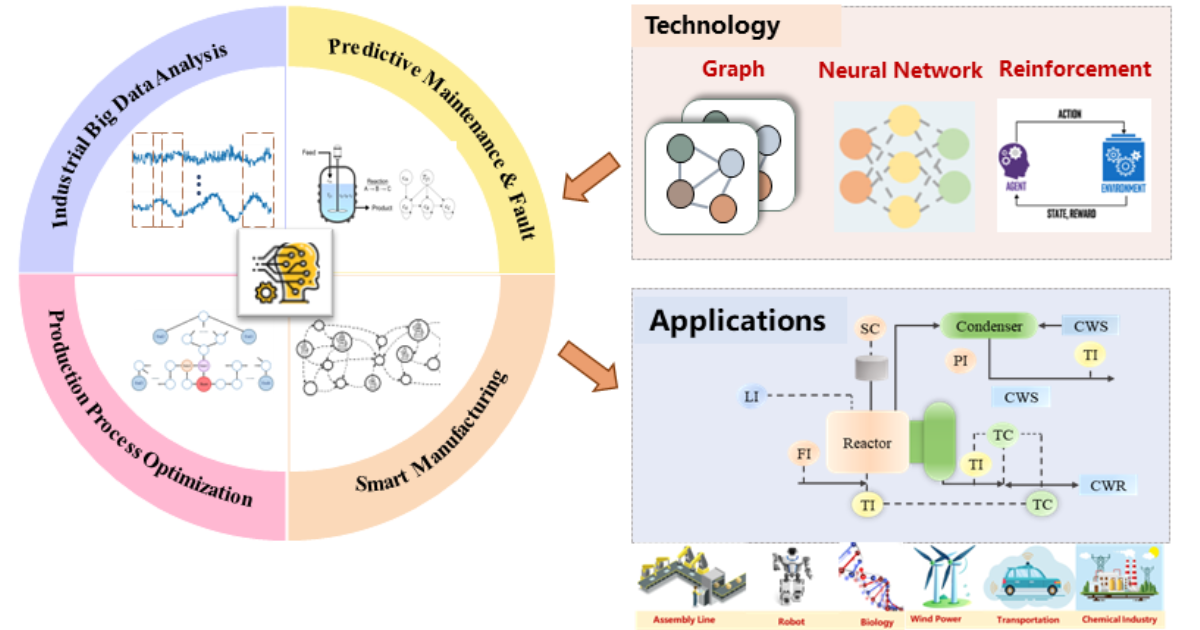Reinforcement Learning for Real-World Applications
A special issue of Applied Sciences (ISSN 2076-3417). This special issue belongs to the section "Computing and Artificial Intelligence".
Deadline for manuscript submissions: 20 October 2025 | Viewed by 328

Special Issue Editors
Interests: machine learning; artificial intelligence; complex system modeling and optimization; fault diagnosis and safety assessment
Special Issue Information
Dear Colleagues,
In recent years, reinforcement learning (RL) has garnered significant attention due to its outstanding performance in solving complex real-world problems. As a machine learning method that trains agents to make optimal decisions through interaction with dynamic environments, RL has demonstrated tremendous potential across multiple disciplines and industries, including robotics control, scheduling optimization, smart manufacturing, intelligent transportation, and energy management. This Special Issue aims to systematically investigate innovative practices of RL algorithms and their integration with other cutting-edge technologies, thereby providing new approaches to address diverse real-world challenges.
Original research articles and reviews are welcome. Research areas may include (but are not limited to) the following:
- RL for Robotics Control and Manipulator Operations: Applying RL to enhance the precision and efficiency of robotic systems, enabling autonomous navigation, manipulation, and task execution in complex environments.
- RL for Scheduling Optimization: Leveraging RL for efficient task allocation and job scheduling in dynamic settings such as manufacturing, logistics, and cloud computing.
- RL for Controller Optimization in Process Engineering: Using RL to optimize control strategies in chemical plants, improving process efficiency, safety, and resource utilization.
- RL Applications of Large Models: Exploring the integration and application of RL in large pre-trained models to enhance decision-making capabilities and generalization performance in complex tasks.
- RL for Intelligent Transportation Systems: Investigating the role of RL in optimizing traffic flow, route planning, and autonomous vehicle operations to improve mobility and reduce congestion.
- RL for Energy Management: Applying RL to intelligently manage energy resources, including demand forecasting, load balancing, and renewable energy integration.
Contributions are encouraged to present both theoretical insights and practical implementations, offering valuable perspectives for future research and technological innovation.
Prof. Dr. Dazi Li
Dr. Pablo Chamoso
Guest Editors
Manuscript Submission Information
Manuscripts should be submitted online at www.mdpi.com by registering and logging in to this website. Once you are registered, click here to go to the submission form. Manuscripts can be submitted until the deadline. All submissions that pass pre-check are peer-reviewed. Accepted papers will be published continuously in the journal (as soon as accepted) and will be listed together on the special issue website. Research articles, review articles as well as short communications are invited. For planned papers, a title and short abstract (about 100 words) can be sent to the Editorial Office for announcement on this website.
Submitted manuscripts should not have been published previously, nor be under consideration for publication elsewhere (except conference proceedings papers). All manuscripts are thoroughly refereed through a single-blind peer-review process. A guide for authors and other relevant information for submission of manuscripts is available on the Instructions for Authors page. Applied Sciences is an international peer-reviewed open access semimonthly journal published by MDPI.
Please visit the Instructions for Authors page before submitting a manuscript. The Article Processing Charge (APC) for publication in this open access journal is 2400 CHF (Swiss Francs). Submitted papers should be well formatted and use good English. Authors may use MDPI's English editing service prior to publication or during author revisions.
Keywords
- reinforcement learning
- robotics control
- scheduling optimization
- smart manufacturing
- intelligent transportation
- energy management
Benefits of Publishing in a Special Issue
- Ease of navigation: Grouping papers by topic helps scholars navigate broad scope journals more efficiently.
- Greater discoverability: Special Issues support the reach and impact of scientific research. Articles in Special Issues are more discoverable and cited more frequently.
- Expansion of research network: Special Issues facilitate connections among authors, fostering scientific collaborations.
- External promotion: Articles in Special Issues are often promoted through the journal's social media, increasing their visibility.
- Reprint: MDPI Books provides the opportunity to republish successful Special Issues in book format, both online and in print.
Further information on MDPI's Special Issue policies can be found here.





